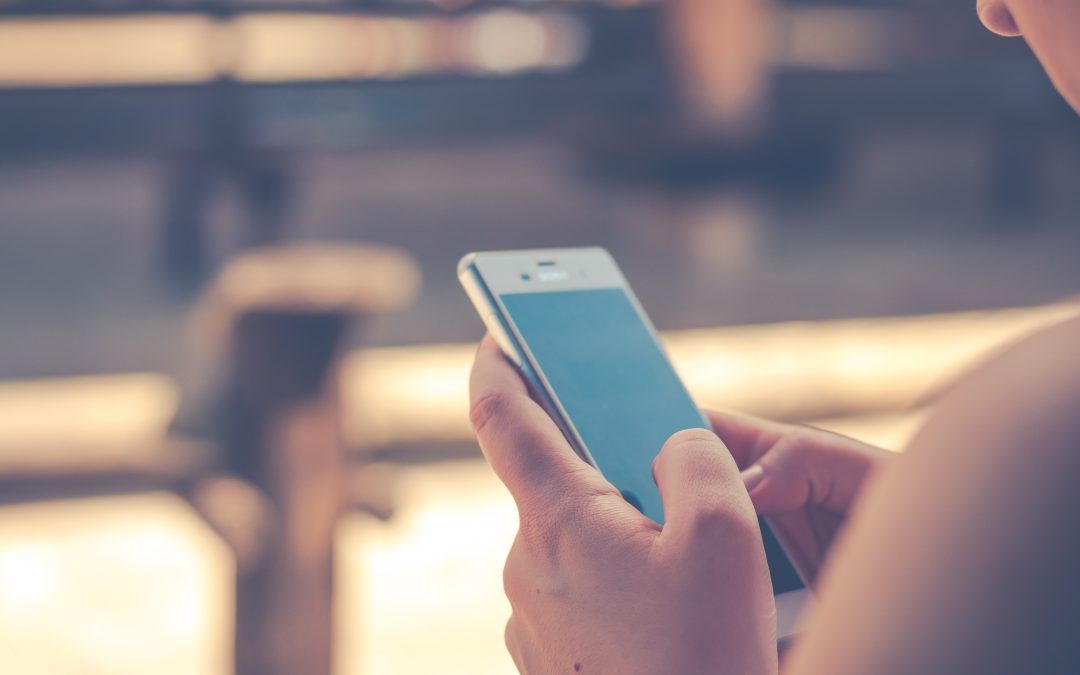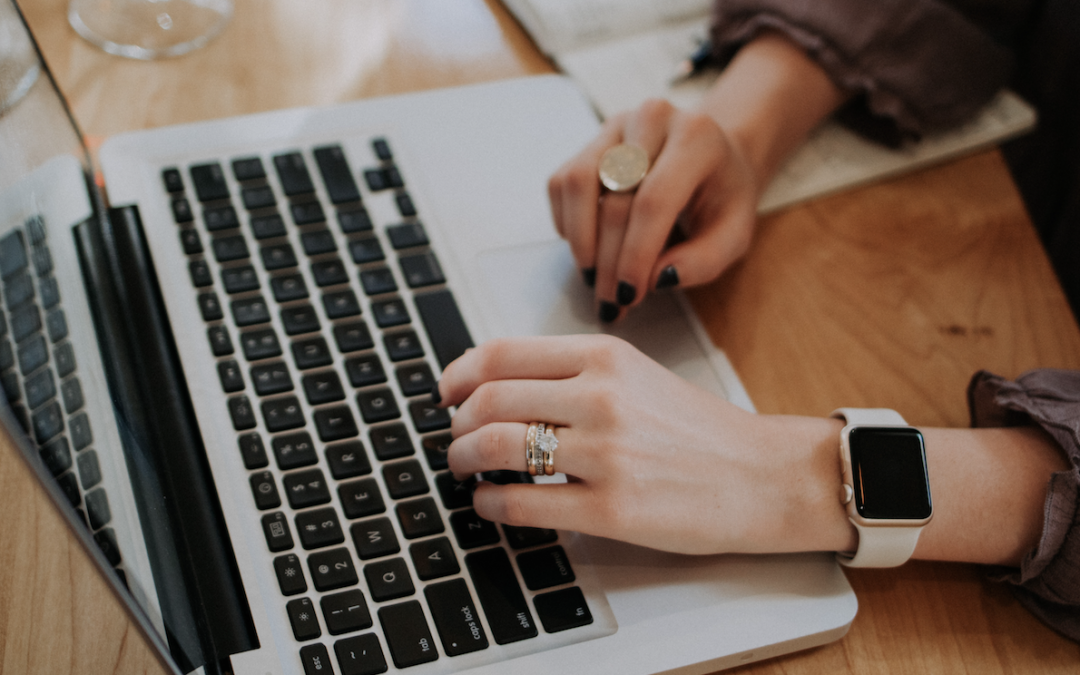
by Nicole | Jul 5, 2017 | Published, VINAZine
Hard work and technology pays off a long lasting friendship.
As we pass through major milestones, our lives change – it’s only natural that our friendships change over the course of time. The key to making friendships last? Hard work. You have to show up and make an effort. Technology (apps like Hey! Vina especially) makes it easier for us to create and strengthen our friendships, but it still takes effort to keep a friendship alive.
Let’s chat about the seven ages of friendship, as recently described by the Daily Mail and how we can continue making our friendships stronger, despite the curveballs life throws at us.
You begin making friends when you’re younger, of course, due to being in school or through playdates your parents set up for you. Those younger, formative years of friendship teach you early on how to be empathetic, compassionate, and accepting.
When you leave school and enter the workforce, you begin to make friends outside of your core age group. Lean on your existing friendships to create new ones and expand your circle by using technology to help you along. Facebook is a great way to extend your network, but be careful to not just be an online friend though. Author of Wired to Connect and psychiatrist Dr. Amy Banks recommends checking in with your new pals offline to cultivate those friendships. “If you neglect friendship at any stage in life, you will feel less competent when you meet new people,” she warns.
The next age of friendship involves coupling. You and your friends begin to pair off with their newfound loves and leave their single pals in the dust. It happens, but we can avoid neglecting our friendships during this period by being cognizant of our single friends’ feelings.
Our very own founder and CEO of Vina, Olivia Poole, told the Daily Mail “When I was single, I used to find that sometimes my friends wouldn’t invite me, perceiving the gathering as a ‘couple thing’ even though I wouldn’t have minded.” There you go – extend that invite anyway, babe! Another suggestion: use Hey! Vina and set up dates with new pals. Even if you’re in a committed relationship, it’s important to date your friends too!
Now come the babies (for some, anyway) and the balancing. When you’re in a friendship with someone who’s beginning their journey into parenthood, it can be hard to continue nurturing that relationship. I am one of the only gals out of my friends who doesn’t have children, but that doesn’t change how I feel about my friend. I’m understanding of their new busy life and I make sure to carve out time when their schedule allows. Of course, it’s helpful when they keep my schedule in mind, too, as work tends to be my baby. Set a quick coffee date that is kid-friendly or an evening out if your schedules allow. Just don’t lose touch – sometimes, that’s the thread that keeps your friendship strong if you can’t see each other all the time like you used to.
When the kids are grown and off to make their own way in the world, you may be with that empty nest feeling. You may have lost touch with old friends and are struggling to make new ones in your newfound free time. Irene Levine, a professor of psychology at New York University’s School of Medicine, shares in her experience: “The willingness to share confidences and form intimate friendships is more likely to be a matter of personality than age. Many women grow more confident with age and are open to new friendships.” Therefore, be open to meet new people that fill different needs and remember, it can take time to build up friendships with someone new – just like at any age, you have to take your time to get to know someone.
Finally, the age we’re all waiting for: retirement! You may have grandchildren by this time, or you may be traveling the world. Chances are you’ve moved to a new place in your life so your old friends may not be around and it’s harder than ever to keep in touch. The nice thing about this age is you have free time to spend doing things you love. Sign up to volunteer somewhere or take a class to learn something new. If you’re on a fixed budget, schedule coffee dates with friends, new and old, or take a walk in a park while you chat with each other about your lives.
(Featured Image via Payton Sartain)
Friendships, just like us, evolve over time. You have to put the work into keeping the bond strong. What stage are you in?

by Nicole | Jun 13, 2017 | Published, VINAZine
Thanks, but no thanks.
It’s happened to us all, from both sides – we’ve given unwanted advice to our friends and they’ve done the same to us. Despite the best intentions from either party, things don’t go over well on the receiving end. So how do you handle when your bestie gives you some unwanted advice?
In my experience, I’ve discovered the best way to handle this situation is to smile and express gratitude. Even if I don’t agree with the advice I’m given or think it won’t work for me, I try to appreciate the sentiment. I look at it this way – if my friend feels comfortable enough to tell me her opinion and give some advice about something I’m facing, they are most likely coming from a place of love.
BUT WHAT TO DO THE EXPERTS SAY?
I recently found an article from Psychology Today (penned by Amy Morin, an author/psychotherapist/licensed social worker) that outlines a few responses for handling unwanted advice. She shares a very important tidbit of information: reply to the person giving you advice in such a way that doesn’t give up your power in the conversation or relationship. You don’t want to damage your friendship by shutting someone down immediately, but you also don’t want to receive more unwanted advice. Sure, it’s a very delicate line but it’s possible to handle it with grace.
“Reply to the person giving you advice in such a way that doesn’t give up your power in the conversation or relationship.”
Some of Morin’s suggested lines are fantastic. From, “I’ll think about that,” to, “I’ll consider if that’s right for me,” or, “I’m not looking for any advice right now,” she has examples on how to stand firm when receiving unsolicited advice from someone in your life. The key is to set boundaries and stay in control of the situation. Remember: it’s ultimately your call how to handle a situation. If you’re given advice you don’t agree with, you are free to place it in the back of your mind and go forth as you see fit. You don’t need to explain yourself, either. That is honestly one of the most important things I’ve learned – being okay with not explaining yourself or your decisions after someone gives you unsolicited advice.
My favorite piece from Morin’s article is this – “Always consider the source.” Such a great rule of thumb when faced with some advice you don’t necessary need or want to hear. If it’s a close friend or your bestie doling out the advice it might be good for you to consider it. You will know it’s not something that’s right for you; you can simply say so and move forward. If it’s a new friend or acquaintance you aren’t super close with (yet), who doesn’t know much about you or the situation, you can be polite but still tell them you won’t be doing what they suggest.
How do you handle unwanted advice? Will you change your approach now that you’ve read this? Share your thoughts with us below!

by Nicole | Jun 4, 2017 | Published, VINAZine
How to be a good friend when you don’t know what you did wrong.
Ever have a really good vina stop talking to you? Either they disappeared for while or they just totally ghosted you, without any explanation? For those of us who have been there, we understand how difficult that road it is to navigate.
For you vinas who have never before experienced this pain, but are going through it now, my heart goes out to you. It hurts. Especially when you have a deep history; when your lives are so terribly intertwined… I’ve been there before and I’ve learned a great deal on how to act, and how not to react.
FIRST, CONSIDER THE CIRCUMSTANCES:
Did you give your vina advice she didn’t want to hear?
Did you two have an argument?
Did you suffocate them with love?
Did you bad mouth her bf?
Or, are you still utterly confused as to why she is shutting you out? I’ve been through each of these scenarios but I will say… in the heat of the moment, it’s easy to let your confusion turn into anger.
Don’t fight fire with fire. In these situations, it’s best to cool off before you approach the subject with your vina. For a few days, just be silent; be still. After a decent amount of time has passed, only then should you try to open the line of communication. Understand you might not get a response immediately… or for a while… or ever.
What’s important is that you let her know you’re there no matter how much time goes by; whenever she decides she’s ready to talk. Then, give her some space and be patient. Yes, it’s probably the hardest thing to do when your vina is shutting you out; ultimately, the best reaction in these situations is to keep calm and try not to pry.
In your message (text, voice, email, or through a mutual friend), make it clear your intentions. Whatever her reasons, at least she knows the door is always open. And you’ll know you tried. Even though if the problem takes time to resolve, you’re baby steps.
IF YOU NEED TO TALK IT OUT:
Have a conversation with your mom or dad, brother or sister, boyfriend or girlfriend. Confide in another trustworthy friend instead of taking that hurt, anger, and confusion to your friend. They can help you try to make sense of the situation; and you won’t further seal off that door with the friend who shut you out.
People say “if they’re a real friend… they’ll come around.”
Sometimes that’s true; sometimes people just need a significant amount of time away before they are ready to reopen the door. And that’s okay, babe. However if she doesn’t… it may be time to face the facts. Some relationships come to an end faster than you expect them to.
DON’T WASTE YOUR TIME:
If your vina is ghosting you with no explanation, don’t feel obligated to jump through hoops for her. If you acted as your very best self and she still wanted none of it, don’t waste your energy What’s important to remember here is: time heals all wounds and we learn to move forward.
It’s never easy dealing with a friend who is pushing you away. How do you handle it when this happens to you?

by Nicole | May 4, 2017 | Published, VINAZine
With the way technology has advanced over the last decade, it’s become all too common for people to be affected by scammers, criminals, stalkers, and imposters. Here are some easy tips to ensure you’re being safe while using the Internet.
WHEN IT COMES TO SOCIAL MEDIA…
In an era when fake news and malware runs wild via links on your favorite social media outlets, you should be aware of what you are clicking on in your feed. To avoid clicking malicious links or being taken to a fake news outlet, you can do the following:
- Take note of the headline, then open up a search engine to investigate the source it appears to be coming from. Personally, I am partial to the search engine website DuckDuckGo because it doesn’t track you, which is super important nowadays, seeing as a law was recently passed to allow Internet Service Providers (ISPs) to sell your browsing history.
Be safety-savvy on Facebook (and other media outlets) by doing the following:
- Be careful who you share private information with. It’s hard to tell sometimes if the person on the other end of the line is scamming you. So trust your gut. If it doesn’t feel right, it probably isn’t. Watch out for those catfishes, vina!
- Lock down your privacy settings so the general public, or maybe just certain people, cannot access some of your more sensitive information, such as birthdates, names/info about family members, photos of your children and home possessions.
- When you’re on vacation, don’t post photos or trip details until after you’ve returned. I’ve heard horror stories from friends who were broken into while on vacation, and the culprit ended up being a random Facebook friend. Don’t put yourself in that position—your posts can wait!
WHEN IT COMES TO YOUR WALLET…
If you love to shop online, make sure you’re purchasing from trusted vendors. If you see something on a unique online boutique, browse for a PayPal option or use a major credit card.
In the event of a scam, often times PayPal or major credit cards will cover your losses and help you rectify the situation. Be sure to speak with card services or PayPal support immediately should you become the victim of fraud.
GENERAL TIPS
Do not click on ads. Even if it appears to be from a trusted vendor or source, some ad links can infect your system with malware or spyware. You’re safest if you just don’t engage. If you see a killer deal on an ad, take note of the vendor, and pop open DuckDuckGo to search for the actual website. Sure, it takes *slightly* longer, but it’s nice knowing your device isn’t going to get a virus because of your impulse to click on the first deal you see.
Do not, under any circumstances, open a link from an untrusted source! A good rule of thumb I follow is this: If it looks shady, lady, it probably is! If I don’t know the sender, I won’t click the link. And neither should you!
This post was originally published on the VINAzine <3

by Nicole | Apr 27, 2017 | Friendship, Published, VINAZine
We’ve all been there – pouring our heart out to a pal only to realize she’s distracted by her own thoughts… or cell phone, television show, the server passing your table with her kryptonite (a piece of unbelievably delicious cheesecake, of course). The “uh-huh”, and, “yeah,” of the conversation and the stray glances around the room are a dead giveaway.
We’ve also been guilty of passive listening ourselves, right? While our friend is in the throes of a breakdown or when she’s needing advice, we’re distracted by the same phone notifications or television blaring in the background.
Passive listening (AKA not really listening) hurts our friendships. There is good news though – we can fix this now and be better friends by using a communication technique called active listening.
Active listening requires the listener to do four core things: concentrate, understand, respond, and remember. Think of it as a cycle – when we concentrate, we understand. When we understand, we can respond appropriately. As a result, we can more easily remember the conversation.
Easy peasy, right? Be a better listener, be a better vina! Here are a few tips to help you become a better active listener, and in turn, a better bestie.
Make eye contact. Put your phone down and look at your friend’s gorgeous face while she talks! This shows you’re fully invested in what she’s saying.
Re-state, but don’t be a parrot. By paraphrasing what you just heard (in your own words), you can ensure you’re on the same page with the speaker. You can use a leading statement like, “Let me get this straight…” before you reiterate what you just heard.
Learn how to effectively question. Sticking to open-ended questions always keeps the conversation going. You can also use leading or reflective questions, like, “What happened next?” or, “What worries you about that?” to make sure your gal knows you’re engaged in the conversation.
Allow for silence or pauses within the conversation. Don’t get in a hurry during your chat. By taking some pauses or letting comfortable silences happen, it slows down the conversation and allows more time for you both to process what is being said.
Avoid blocking the conversation. Interrupting, preaching, or acting judgy toward your friend is probably the quickest way to make sure she doesn’t come back to you with her dilemmas (or her successes!). Keeping your mind open and mouth closed while your bestie tells you what’s on her mind will help you better process what she’s saying while your bond becomes even stronger.
Like most things, practice makes perfect. Active listening is a skill we hone over time that helps us build trust and understanding between us and our friends. Being fully engaged in the conversation takes some work, but we have in us. Be a better friend by being a better listener, babe – our friendships are worth it!
This post was originally published on the VINAzine <3

by Nicole | Apr 10, 2017 | Published, VINAZine
Did you know one in three adult Americans don’t sleep as much as they should? Insane, right? Sleep deprivation is a pretty serious thing, and when you don’t get enough sleep it can affect your mental health. Sure, there’s coffee and other ways to energize us when we didn’t catch enough Z’s the night before, but nothing compares to a great night of sleep.
Psychology Today contributors Richard Taite (CEO and founder of Cliffside Malibu Treatment Center) and Constance Scharff, Ph.D. recently published an article which includes a few great reasons why getting good sleep can keep you not only sane, but mentally healthy.
One big reason is your brain needs time to cleanse itself. When you go to sleep at night, you’re giving not just your body time to rest, but also your brain. You know that groggy feeling you get after not getting enough sleep? That’s because your brain didn’t have enough time to get rid of all the neural waste (the environmental data your brain collects throughout the day). Let your brain take some time to rejuvenate tonight by getting at least seven hours, so you don’t feel so cloudy tomorrow.
Another reason, as if that wasn’t enough, was that your brain needs to have some time to process “powerful events.” When we go through something traumatic, it may be hard to shut your mind off and go to sleep, but it’s very important you do because it can reduce the risk of having post-traumatic stress disorder (PTSD). Taite and Scharff write that,“sleeping within a few hours of a traumatic event acts as a preventative treatment against developing PTSD, helping the brain get things in order so the survivor can effectively process and move on from the trauma.”
The third reason Taite and Scharff present has to do with peace of mind, or mindfulness. They share that the Schools of Medicine at UCLA and the University of Southern California found that subjects who reported difficulty sleeping had better sleep when they engaged in a “mindful awareness practice” (or MAP). Taking some time to meditate during the day or right before you go to sleep can help you become more mindful. Bonus: it will definitely help you sleep better at night, but it has loads of benefits for your overall mental health.
Now, let’s put this all to use. Today, take a few minutes to be mindful and tonight, why don’t you try getting at least seven hours of sleep – your mind, body, and soul will thank you!
Page 4 of 14« First«...345...10...»Last »





